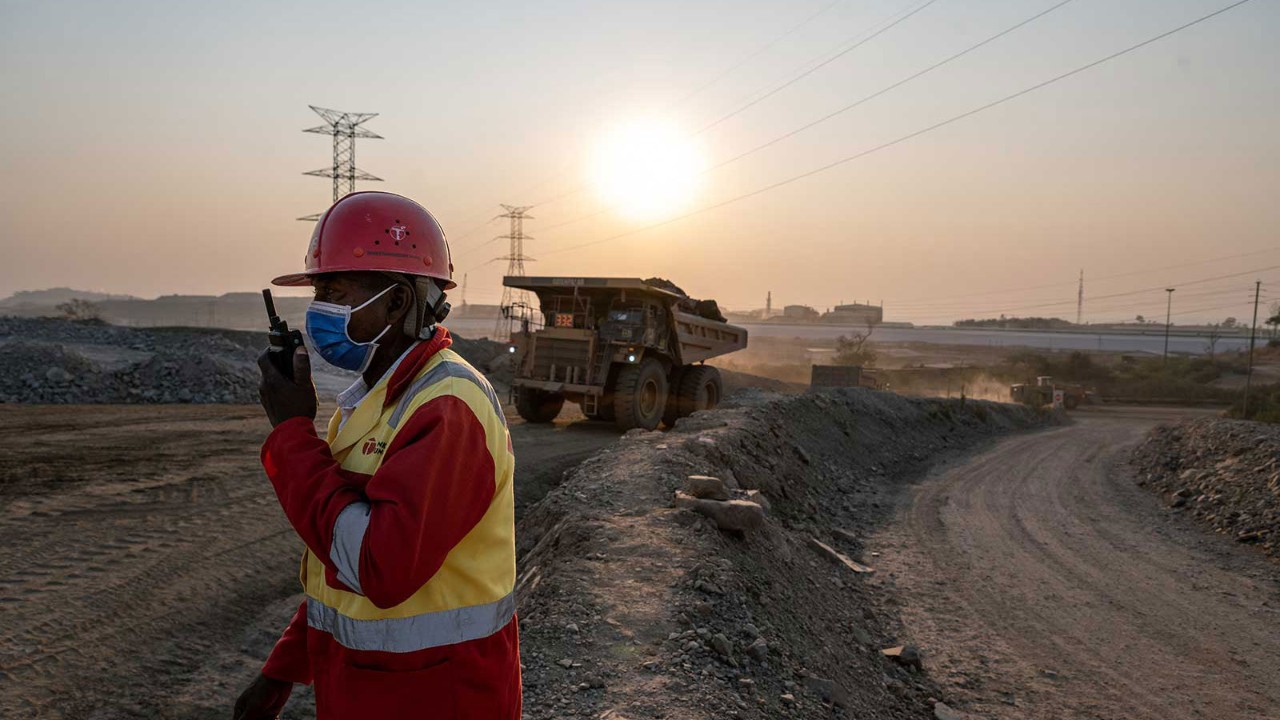
The transition to a zero-carbon economy represents a golden opportunity for Africa to supercharge economic growth. The continent contains around 30% of the world’s mineral reserves, including strategic resources that are essential to green technologies – from solar panels and electric vehicles to battery storage and geothermal energy.
To address the rising demand for such technologies, it is estimated that the extraction of minerals and metals such as lithium, graphite and cobalt will need to increase by close to 500% by 2050.
These strategic minerals are also critical in high-tech sectors such as electronics and healthcare, areas of the global economy that are also growing fast. This potential bonanza could transform the region’s economic fortunes, according to a recent United Nations Conference on Trade and Development (UNCTAD) report.
Manufacturing hub
If the region can attract sufficient investment to extract these critical resources, the resulting revenues could help finance the broader investments in infrastructure and education that could enable the continent to position itself as a manufacturing hub.
Seizing this opportunity will require huge investment
‘This is Africa’s moment to bolster its position in global supply chains, strengthen its emerging industries and create millions of jobs,’ argued UNCTAD’s secretary-general Rebeca Grynspan in August last year. But seizing this opportunity will require huge investment into extraction, processing and establishing manufacturing plants, investment that has not been a priority for companies.
David Omojomolo, an emerging market economist focused on Africa for consultancy Capital Economics, agrees that with global demand for these resources set to surge, the investment potential is huge. However, he points out that there remain long-standing challenges to allocating resources to parts of the continent: ‘Political instability and weak transport networks, along with a patchwork of trade barriers, increase the difficulty of exporting minerals once they have been extracted.’
Could do better
These shortcomings help explain why Africa generally punches below its weight in global mining and supply chains more broadly. Africa accounts for just 3% of global trade, despite being home to about 18% of the world’s population.
The current shortfall is also underlined by the gulf between Africa’s reserves of key minerals and current levels of production. Take graphite, an essential resource in lithium-ion batteries in electric vehicles and energy storage, which accounts for about a third of all minerals used in electric cars. Just three African nations – Madagascar, Mozambique and Tanzania – account for over a fifth of global reserves, just shy of China’s share of reserves at 23%. Yet China produces around 66% of the world’s graphite, versus roughly 22% for these African nations. Significantly, China is responsible for refining more than 90% of graphite worldwide.
Africa’s oil experience offers a cautionary tale. Despite a wealth of reserves, its oil output has actually fallen by around 24% over the past decade while global output has risen by around 9%. The continent has also failed to become a major centre for refining, accounting for a mere 2% of global production, although there are hopes that this will change with the opening of the US$19bn Dangote refinery in Lagos.
‘There is still anxiety among finance chiefs about political turbulence in the region’
Thea Fourie, head of sub-Saharan Africa analysis for S&P Global Market Intelligence, believes that for the region to really make progress, governments need to convince companies to invest not just in extraction, but also processing. Governments could compel companies that want access to minerals to process them in the country.
In June 2023, for example, Namibia banned the export of unprocessed lithium and other critical minerals, including rare earths such as dysprosium and terbium needed to create magnets in batteries of electric cars and wind turbines.
‘It is true that this method can force companies to invest more in processing metals locally,’ Fourie says. ‘However, it also risks reducing the willingness of executives to invest in these projects, since they come with more strings attached.’
More to do
Fourie argues that a good deal still needs to be done for Africa to establish itself as a manufacturing hub. ‘There is still a lot of anxiety among finance chiefs about the political turbulence in the region,’ she says.
‘And since many governments are spending so much on security, it can be hard to find the long-term resources needed to improve infrastructure and education, as well as ensuring reliable supplies of electricity. At the same time, government revenues have come under pressure to protect citizens as far as possible from high inflation.’
Finance chiefs may take a cautious approach to investing in Africa’s mineral reserves
And for Africa, a wealth of minerals has historically been a double-edged sword. There need to be ‘accountability mechanisms’ in place to ensure that revenue from minerals is a ‘catalyst for development’, observes Dr Alecia Ndlovu, an expert in the continent’s resource governance. ‘Otherwise, unfilled promises with no means of redress will exacerbate political instability and create a less attractive investment climate.’
The bottom line is that many finance chiefs may be inclined to take a cautious approach to investing in the region’s strategic mineral reserves. They will be looking for further reassurance that resource-rich African nations can ensure a more secure environment for businesses to operate. But booming demand for key minerals clearly presents many African nations with a chance to increase the continent’s footprint in global trade.


